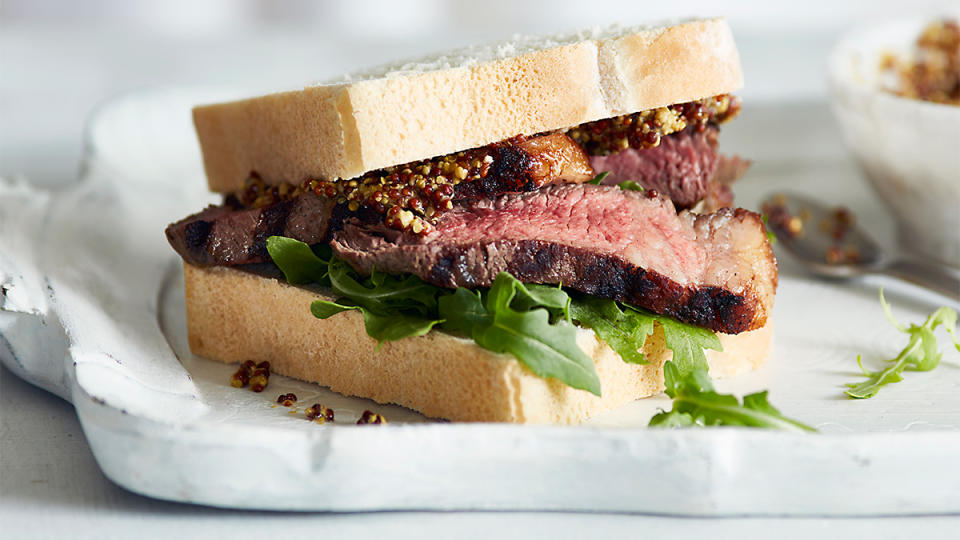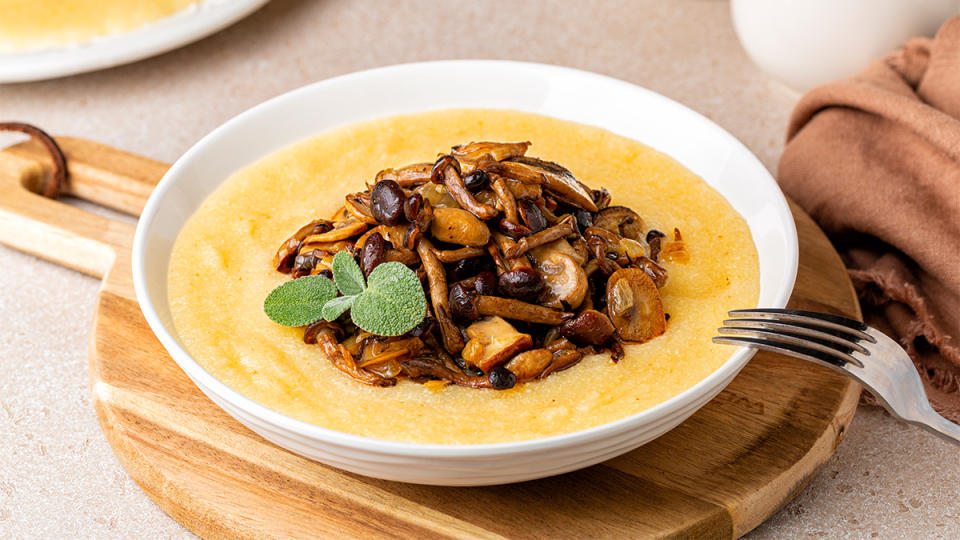This Baking Staple Makes Tasty Caramelized Onions in Less Time — Chef's Top Trick
There's nothing quite like caramelized onions — letting them cook slowly until they turn golden brown results in onions that have a savory sweetness and are perfect for adding rich flavor to so many dishes. They're perfect on sandwiches, atop mashed potatoes, used as a base for braises and so much more. The one hitch? Most recipes take the low-and-slow approach: stand over the stove and stir the onions for almost an hour. If you don't have the time, don't worry — we've got a clever shortcut to quick caramelized onions that gets you all the flavor without all the work. Keep scrolling for the secrets the cooking pros use in their own kitchens.
How caramelized onions are usually made
Most traditional methods for caramelizing onions call for tossing sliced onions into a pan with butter and stirring them over low heat for about 30 to 40 minutes. Some recipes include broth and other ingredients, but you still end up waiting a while for the onions' natural sugars to come out and caramelize.
3 quick chef's tricks for caramelizing onions
Chef and cookbook author J. Kenji López-Alt of Serious Eats, along with Lindsey Chastain, founder and CEO of The Waddle and Cluck, have cracked the code for quick caramelized onions! Just follow these three steps to nail satuéed onions that taste like you've been spending an hour or more cooking them.
1. Crank up the heat
Turning up the heat might seem counterintuitive as the point of caramelizing onions slowly is to keep them from charring in the pan. But López-Alt says using a medium-high or even the highest flame setting will work if you occasionally add splashes of water throughout the cooking process. “Every time they threaten to start burning, just add a couple tablespoons of water to even out the cooking, and you're smooth-sailing once again,” he notes.
2. Make sure the onions are spread into an even layer
Once the skillet's heated, Chastain suggests adding the onions without overcrowding the surface, which causes them to cook slower. "Spread the onions out in an even layer and let them cook undisturbed for 5 to 7 minutes to brown the underside," she says. Afterwards, you can stir the onion mixture and continue cooking until they're completely soft and brown.
3. Sprinkle in this baking staple
For onions that brown quicker, consider adding an optional ingredient: baking soda. This pantry staple raises the pH of the onions, which in turn speeds the chemical reaction that causes onions to brown. López-Alt, who's tested this trick and found success with it, notes that a little goes a long way. “While large amounts of baking soda dramatically increased the browning rate (by over 50%!), any more than ¼ teaspoon per pound of chopped onions proved to be too much.” he notes. If using, the baking soda is best added during the first minute or two sautéing so it has time to cook with the onions. (For more on the browning powers of baking soda, click through for how to use it to cook ground beef.)
2 recipes using quick-cooking caramelized onions
These tips deliver caramelized onions with more flavor in a shorter amount of time, making them perfect to incorporate into our recipes for Steak and Caramelized Onion Sandwiches and Parmesan Polenta With Caramelized Onions. Let's dig in!
Steak and Caramelized Onion Sandwiches

Cooking onions until they're soft is the easy secret to this stick-to-your-ribs sensation.
Ingredients:
1 Tbs. olive oil
2 medium onions, thinly sliced (equals around 1 lb.)
¼ tsp. baking soda (optional)
1 Tbs. white balsamic vinegar
1 lb. skirt steak, halved crosswise
4 tsp. 25% less-sodium Montreal steak seasoning
⅓ cup light mayonnaise
1 clove garlic, minced
8 slices multigrain bread
1 cup drained sliced beets, from 15-oz. can (optional)
2 tomatoes, sliced
2 cups baby arugula
Directions:
Active: 30 mins
Total time: 30 mins
Yield: 4 servings
To caramelize onions: In large nonstick skillet, heat oil over medium-high heat. Add onions and baking soda; cook, stirring occasionally, until lightly browned, 10 to 12 minutes. Add ½ cup water; reduce heat to medium-low. Cover; cook, stirring occasionally, until tender and water has evaporated, 12 to 15 minutes; stir in vinegar.
To make steak: Position broiler rack so top of meat on rack in pan will be 6-inch from heat source. Heat broiler. Rub both sides of steak with seasoning. Broil about 3 minutes per side for medium-rare. Let rest 5 minutes before slicing.
In small bowl, stir together mayonnaise and garlic. Spread mayonnaise mixture on one side of each bread slice. Top half of bread slices with sliced beets (if using), then tomatoes, sliced steak, onions and arugula. Top with remaining bread, mayonnaise side down.
Parmesan Polenta With Caramelized Onions

Dress up ordinary polenta with nutty Parmesan cheese for a rich side dish everyone will adore.
Ingredients:
3 Tbs. butter
1 lb. onions, peeled, thinly sliced
¼ tsp. baking soda (optional)
1 Tbs. whiskey
1 Tbs. brown sugar
4 cups low-sodium chicken stock
1 cup stone-ground cornmeal
1 cup grated Parmesan cheese
3 oz. cream cheese
Chopped fresh chives
Directions:
Active: 25 mins
Total time: 1½ hrs.
Yield: 6 servings
To caramelize onions: In skillet, heat 1 Tbs. butter over medium-high heat. Add onions and baking soda; cook, stirring often, until caramelized and tender, 15 minutes. Remove from heat; stir in whiskey and sugar. Season with ½ tsp. each salt and pepper; reserve.
To make polenta: In pot, bring chicken stock to a boil over high heat. Reduce heat to medium-low; whisk in cornmeal. Cook, stirring and scraping bottom of pot, until polenta is creamy, about 25 minutes.
Remove pot from heat; stir in Parmesan, cream cheese and remaining 2 Tbs. butter. Season to taste with salt and pepper. Top with onion mixture and sprinkle with chives.
Click through for more easy cooking tips:
Wipe Instead of Washing — And 3 More Quick Tips To Avoiding Soggy Mushrooms
The Secret to Green Beans That Snap Deliciously? Shocking Them *This* Way

